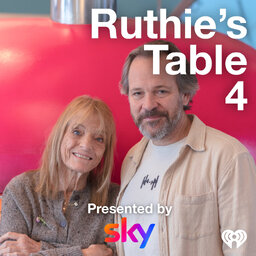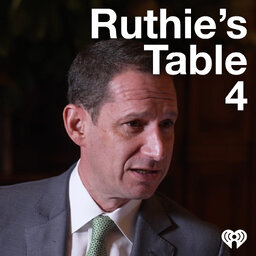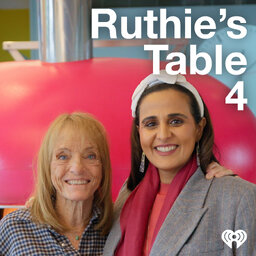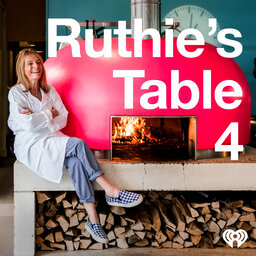Ridley Scott
It was in our private dining room three years ago when I wrote to Ridley Scott asking if he’d be the first guest for a podcast idea I’d had about food and memories.
Ridley wrote back saying, ‘Yes Ruthie but I’m directing Gucci.’
A year later, ‘Yes Ruthie but I’m directing Napoleon.’
A year later, ‘Yes Ruthie but I’m directing The Bee Gees.’
Then a few days ago, whilst sitting in the River Cafe garden with his family, he drew a beautiful drawing on the wine list with the words: ‘Ruthie, how about next Tuesday?’
Ruthie’s Table 4 is made in partnership with Moncler.
In 1 playlist(s)
Ruthie's Table 4
Welcome to Ruthie's Table 4 hosted by Ruthie Rogers, co-founder and chef of The River Cafe in London…Social links
Follow podcast
Recent clips

Peter Sarsgaard
37:26

Mayor Daniel Lurie
36:17

Her Excellency Sheikha Al-Mayassa bint Hamad bin Khalifa Al Thani
28:28
 Ruthie's Table 4
Ruthie's Table 4